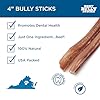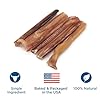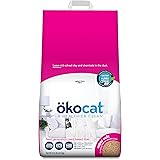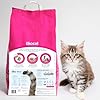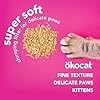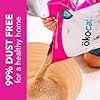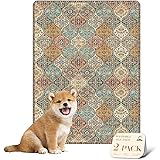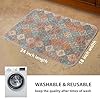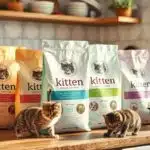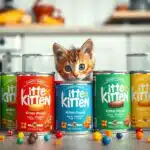As a cat owner, giving your kitten the right food is key for their health. There are many foods out there, making it hard to pick the best. The Association of American Feed Control Officials (AAFCO) says a good diet has six main parts: water, carbs, protein, vitamins, minerals, and fat.
When picking food, look for high-quality protein and animal by-products. You can learn more about vet-approved kitten food options to help you decide.
It’s important to feed your kitten food that a vet approves. Kittens need different nutrients based on their age, how active they are, and any health issues. By choosing a top-notch kitten food that meets AAFCO standards, you give your kitten a great start.
Key Takeaways
- Choose a premium cat food for kittens that meets AAFCO standards
- Consider the role of high-quality protein sources and nutritious animal protein by-products
- Feed your kitten a combination of wet and dry food to reduce the likelihood of picky eating
- Follow recommended feeding guidelines provided by pet food products
- Consult with your veterinarian to determine the best kitten food for your feline friend
- Look for veterinarian-approved kitten food options that cater to your kitten’s specific dietary needs
- Check the first three or four ingredients in kitten food, with meat ideally being one of the first ingredients listed
What is Veterinarian-Approved Kitten Food?
A healthy kitten diet is key for your kitten’s growth. Veterinarian-approved kitten food meets their nutritional needs. It has the right mix of protein, fat, carbs, vitamins, and minerals.
When picking a top-rated kitten food, look for vet recommendations. Make sure it meets AAFCO nutrition standards.
Experts say a good kitten food should have at least 30% protein and 9% fat. Some vet-recommended foods include Iams ProActive Health Kitten Dry Cat Food and Fancy Feast Kitten Tender Ocean Whitefish Feast Canned Cat Food.
Key Nutritional Components
A healthy kitten diet should have protein, fat, carbs, vitamins, and minerals. Look for these in top-rated kitten food:
- High-quality protein sources, such as chicken or salmon
- Whole grains, such as brown rice or oats
- Essential vitamins and minerals, such as vitamin E and calcium
Choosing a vet-approved kitten food ensures your kitten gets a balanced diet.
Benefits of Choosing Veterinarian-Approved Options
Choosing the right food for your kitten is key for their health. High-quality kitten nutrition is vital for their well-being. Premium cat food for kittens helps with their digestion and growth.
A balanced diet is crucial to avoid health issues like digestive problems and allergies. Veterinarian-approved kitten food ensures your kitten gets the nutrients they need. Some benefits include:
- Improved digestive health
- Enhanced growth and development
- Reduced risk of chronic diseases, such as kidney disease and diabetes
The World Small Animal Veterinary Alliance (WSAVA) says many vets recommend certain foods. Wellness pet food is one example. It has high-quality ingredients and meets strict standards.
Choosing vet-approved kitten food means your kitten gets the nutrients they need. With many options, it’s important to talk to your vet. They can help pick the best food for your kitten’s needs.
| Kitten Food Type | Benefits |
|---|---|
| Premium cat food for kittens | High-quality ingredients, essential nutrients, and improved digestive health |
| Vet-approved kitten meal options | Reduced risk of chronic diseases, enhanced growth and development, and improved overall health |
Top Ingredients to Look For
Choosing the right healthy kitten diet is key. Look for a veterinarian-approved kitten food with the right mix of nutrients. It should have proteins, fats, and carbs for growth.
Cat food needs at least 26% to 30% protein by dry matter, says AAFCO. Kittens need about 30% of their energy from protein. They also need vitamins A, D, E, K, and B-vitamins. Plus, minerals like Calcium, phosphorus, iron, and zinc are important.
Here are some important ingredients to find in a best kitten food brand:
- Named meat sources, like chicken or salmon, for amino acids like taurine
- Animal fats, such as chicken fat and salmon oil, for better digestion
- Natural fiber sources, like beet pulp, cellulose, and psyllium husk
A veterinarian-approved kitten food will also have the right vitamins and minerals. Stay away from harmful ingredients like animal by-products, grains, and artificial additives. A quality healthy kitten diet ensures your kitten grows well.
How to Choose the Right Kitten Food
Choosing the best food for your kitten involves several key factors. Look for top-rated kitten food that’s full of essential nutrients. This supports their growth and development. Premium cat food for kittens is made to meet young cats’ specific needs. It’s important to pick a high-quality option.
Consider your kitten’s age and breed when selecting food. Different breeds have unique nutritional needs. Kittens need more protein and a balanced mix of fats, vitamins, and minerals. Top-rated kitten food is formulated to meet these needs, so choose a food designed for your kitten’s life stage.
Age and Breed Considerations
Some kittens may have allergies or sensitivities. This can affect their dietary needs. If your kitten has a food allergy or sensitivity, pick a food that avoids common allergens. Vets often recommend kitten food that minimizes allergic reactions. It may include novel protein sources or unique ingredients to reduce sensitivity risk.
Allergies and Sensitivities
When picking the right kitten food, think about your kitten’s individual needs. Premium cat food for kittens is made to meet young cats’ specific needs. It’s crucial to choose a high-quality option that’s rich in essential nutrients. By selecting top-rated kitten food, you support your kitten’s growth and ensure they thrive in their early years.
Popular Veterinarian-Approved Brands
Choosing the right kitten food is crucial. Look for brands that veterinarians recommend for their high-quality nutrition. Royal Canin, Hill’s Science Diet, and Purina Pro Plan are top picks. They offer a variety of foods for different life stages and health needs.
Royal Canin has been a trusted name for over 50 years, with over 90 cat food varieties. Hill’s Science Diet and Purina Pro Plan also have a wide selection, with over 40 varieties each. Veterinarian-approved kitten food from these brands is available in large pet stores and vet clinics.
These brands stand out for several reasons:
- Royal Canin’s wide range of prescription cat food
- Hill’s Science Diet’s USA-made, vet-formulated products
- Purina Pro Plan’s targeted care options, often without a prescription
Choosing a vet-approved kitten food ensures your kitten gets the best nutrition. Always talk to your vet to find the perfect food for your kitten’s needs.
Understanding Pet Food Labels
Choosing a healthy kitten diet means understanding pet food labels. Pet food is regulated, covering ingredients, making, and labeling. The FDA sets rules for labels that cross state lines. Knowing how to read labels is key to picking the right food for your kitten.
A healthy kitten diet needs top-rated kitten food. Vets recommend food with clear labels. These labels should list ingredients, nutrients, and how to use the food. They also show the minimum and maximum amounts of nutrients like protein and fat.
- Nutritional adequacy statement
- Ingredient list
- Guaranteed analysis
- Feeding guidelines
Understanding these terms helps you choose the best food for your kitten. Look for labels that are easy to read. They should give all the info your kitten needs for a balanced diet.
Transitioning Your Kitten to New Food
When you introduce new food to your kitten, do it slowly to avoid upset stomachs. A vet-approved kitten meal option can make the change easier. Start by mixing a little of the new food with their old food. Gradually add more new food over 7-10 days.
Here’s a simple guide to follow:
- Days 1 and 2: ¼ new food to ¾ old food
- Days 3 and 4: ½ new food to ½ old food
- Days 5 and 6: ¾ new food to ¼ old food
- Days 7 to 10: 100% new food
It’s important to give your kitten high-quality kitten nutrition during this time. Choose premium cat food for kittens that fits their needs. If your kitten shows signs of food sensitivity, like vomiting or diarrhea, talk to your vet.
Every kitten is unique, and their needs can differ. Be patient and work with your vet to find the right food for your kitten.
Feeding Guidelines for Kittens
Feeding your kitten the right amount of food at the right time is key for their growth. A healthy kitten diet should have protein, fat, and carbs. Choose a best kitten food brand that’s vet-approved for your pet.
Kittens need to eat often, especially in the first six months. They should eat every 4 to 6 hours to keep up their energy. The amount of food they need changes based on their age, breed, and size. Usually, kittens eat between ¼ and ½ cups of food per meal. Watching how much they eat is important to avoid obesity.
- Kittens under 6 months should eat every 4 to 6 hours
- Kittens should consume between ¼ and ½ cups of food per meal
- Monitor food intake to prevent overfeeding
A veterinarian-approved kitten food gives your kitten the nutrients they need. Always talk to your vet to find out the best feeding schedule and amounts for your kitten.
Common Mistakes to Avoid
Feeding your kitten the right food is key for their health. It’s important to avoid overfeeding and obesity. Vets say to feed recommended kitten food by vets in the right amounts to keep them at a healthy weight.
Overfeeding and Obesity
Overfeeding is a big mistake in cat care, leading to obesity. This is the most common nutritional disease in cats. To prevent this, watch your kitten’s weight and adjust their food as needed. Premium cat food for kittens is good, but always follow the feeding guidelines.
Skipping Veterinary Consultations
Regular vet visits are crucial for your kitten’s care. Skipping them can hide health problems that get worse. By feeding your kitten top-rated kitten food and seeing your vet often, you can avoid mistakes and keep your kitten happy and healthy.
The Role of Wet vs. Dry Food
Choosing between wet and dry food for kittens is a common debate. Vet-approved kitten meals differ in nutritional value and benefits. Both wet and dry premium cat food for kittens have their own perks.
Wet food has more moisture, which helps kittens with urinary problems or those who drink less. Dry food, however, is easier to leave out and doesn’t spoil quickly. The choice between wet and dry food depends on the kitten’s needs and likes.
Here are some main differences between wet and dry food:
- Moisture content: Wet food has 70-85% water, while dry food has 6-10%.
- Protein and fat content: Wet food has more protein and fat, while dry food has more carbs.
- Calorie density: Wet food is less calorie-dense, offering more food for fewer calories.
In summary, both wet and dry food can be good for kittens. By thinking about the kitten’s needs and likes, owners can pick the best vet-approved meals. This ensures kittens get the best premium cat food.
| Food Type | Moisture Content | Protein and Fat Content | Calorie Density |
|---|---|---|---|
| Wet Food | 70-85% water | Higher percentage of protein and fat | Lower calorie density |
| Dry Food | 6-10% water | Higher percentage of carbohydrates | Higher calorie density |
Homemade Diets: Pros and Cons
Some pet owners choose homemade diets for their kittens, thinking they can control what they eat. But, making a balanced diet at home is hard. About 70% of cat food is made with help from vet nutritionists to ensure it’s right.
Homemade diets need careful planning to avoid nutritional gaps. Cats need at least 25% protein in their diet. Without enough taurine and vitamin A, they can get very sick. So, it’s important to talk to a vet to make sure the diet is healthy.
Thinking about homemade diets means weighing the good and bad sides. You can tailor the diet to your kitten’s needs and avoid bad stuff in some commercial foods. But, it takes a lot of time and can cost a lot more than store-bought food. Plus, there’s a big chance of missing important nutrients if not done right.
Special Dietary Needs for Kittens
Kittens with sensitive stomachs need special care in their diet. Top-rated kitten food can ease digestive problems. Vets recommend certain foods for the best growth. Premium cat food for kittens also meets their unique needs.
Some kittens might have allergies or sensitivities. It’s crucial to pick a kitten food that’s hypoallergenic or has fewer ingredients. A vet can guide you to the right food. Here are some tips for choosing the right kitten food:
- Look for kitten food with novel protein sources, such as venison or salmon
- Choose a kitten food with limited carbohydrates, as high-carb diets can exacerbate digestive issues
- Consider a kitten food with added omega-3 fatty acids, which can help reduce inflammation
By choosing high-quality kitten food, kittens can grow into healthy adult cats. Work with a vet to find the best food for your kitten.
| Kitten Food Type | Characteristics | Benefits |
|---|---|---|
| Top-rated kitten food | High-quality protein sources, limited carbohydrates | Supports optimal growth and development |
| Premium cat food for kittens | Novel protein sources, added omega-3 fatty acids | Helps alleviate digestive issues and reduce inflammation |
| Recommended kitten food by vets | Hypoallergenic or limited ingredients, suitable for kittens with allergies | Provides necessary nutrients for kittens with sensitive stomachs or allergies |
Conclusion: Making the Best Choice for Your Kitten
Choosing the right veterinarian-approved kitten food is key for your kitten’s health. High-quality nutrition is essential for their growth. A balanced diet, with your vet’s advice, ensures a happy kitten.
Whether you choose a top brand or homemade food, talk to your vet first. They can help pick the best nutrition for your kitten. With the right food and care, your kitten will grow strong and bring you joy for years.


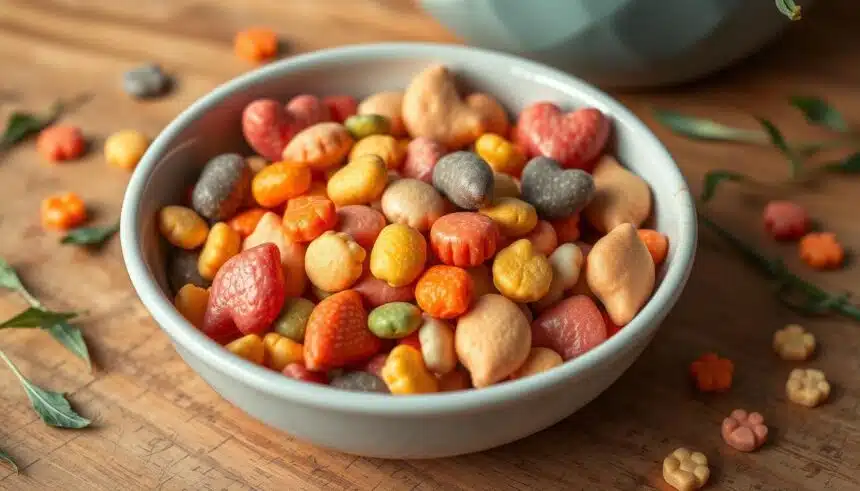
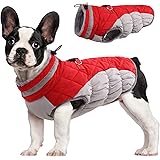


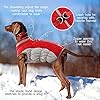









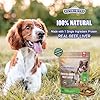

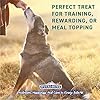
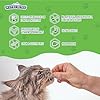

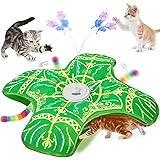
![Qraxond Interactive Cat Toys for Indoor Cats,[Newly Upgraded] Rechargeable Touch Activated Hide and Seek Kitten Toys for Bored Indoor Adult Cats with Fluttering (Green) #1](https://m.media-amazon.com/images/I/51fa10zmCoL._SL100_.jpg)
![Qraxond Interactive Cat Toys for Indoor Cats,[Newly Upgraded] Rechargeable Touch Activated Hide and Seek Kitten Toys for Bored Indoor Adult Cats with Fluttering (Green) #2](https://m.media-amazon.com/images/I/519faiPR-oL._SL100_.jpg)
![Qraxond Interactive Cat Toys for Indoor Cats,[Newly Upgraded] Rechargeable Touch Activated Hide and Seek Kitten Toys for Bored Indoor Adult Cats with Fluttering (Green) #3](https://m.media-amazon.com/images/I/51VqpkouYSL._SL100_.jpg)
![Qraxond Interactive Cat Toys for Indoor Cats,[Newly Upgraded] Rechargeable Touch Activated Hide and Seek Kitten Toys for Bored Indoor Adult Cats with Fluttering (Green) #4](https://m.media-amazon.com/images/I/41XYwsua0XL._SL100_.jpg)
![Qraxond Interactive Cat Toys for Indoor Cats,[Newly Upgraded] Rechargeable Touch Activated Hide and Seek Kitten Toys for Bored Indoor Adult Cats with Fluttering (Green) #5](https://m.media-amazon.com/images/I/51cjkPflJuL._SL100_.jpg)








